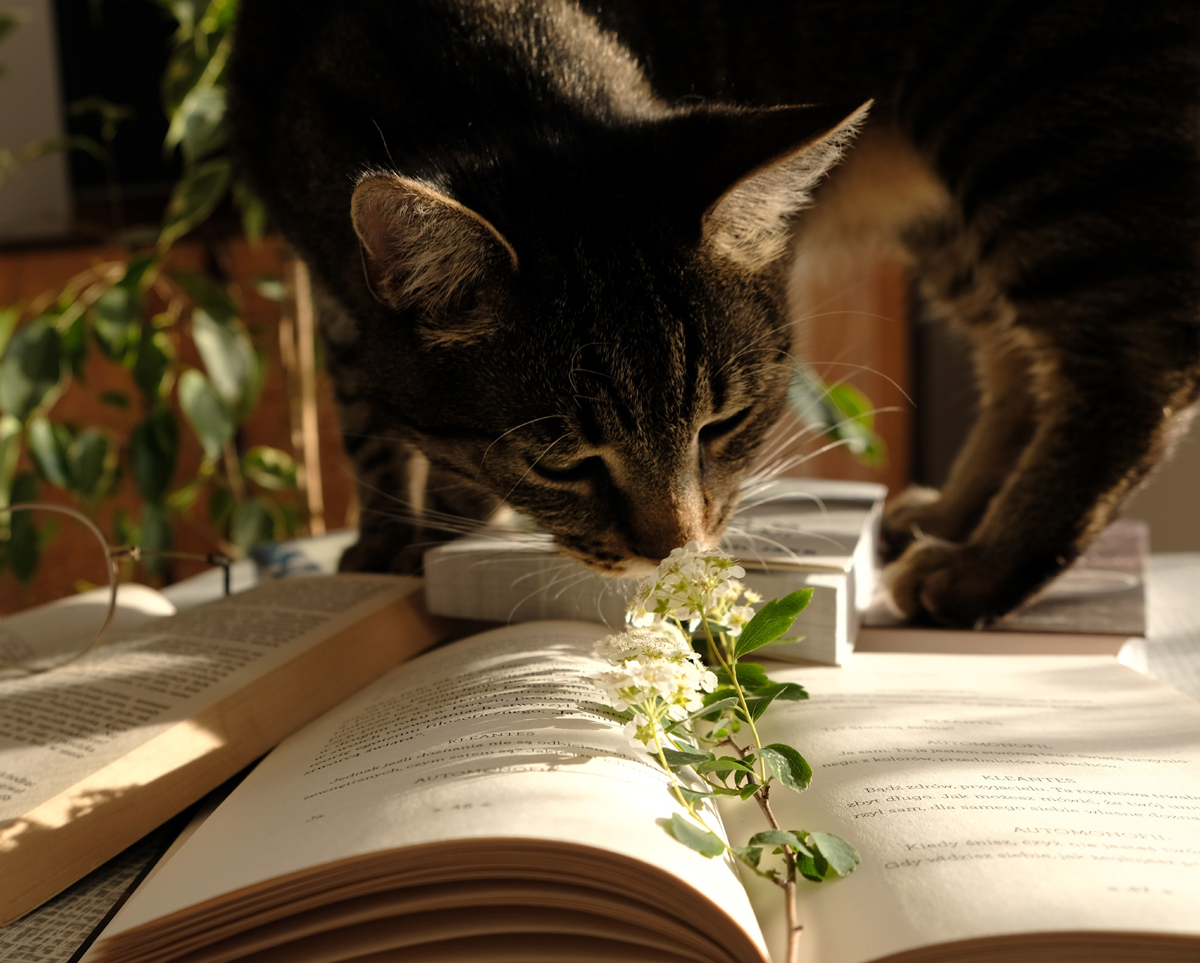Aromatherapy for Cats

Cats are inherently instinctive, independent and agile creatures. They are notorious for chasing almost anything and eating mice, birds and other small animals. Cats also love roaming and playing, and often fight to protect their territory.
Urban cats and country cats are quite different. Country cats are generally tough while city kitties tend to show more weakness in their immune, pulmonary and digestive systems. Appropriate food choices according to their environment plays a major role in the well-being of diverse cats.
A third category, indoor cats, has specific needs as well. Indoor cats often live comfortably and don’t have the opportunity to experience the fun and frolic of the outdoors. Owners of indoor cats should pay close attention to providing a healthy diet and playing with their feline friend as often as possible to help him get in touch with his natural state.
Here are few tips veterinarians often suggest to keep your dear friend healthy:
Do not overfeed your cat with “people” food, such as milk, cheese, etc. Invest in a quality brand and pay close attention to the ingredients. Preferably go to a pet store to find the highest quality food.
Do not feed your cat only canned food. Canned food alone causes fatigue and does not provide a sufficient amount of nutrients. Most vets will recommend a diet of both canned and dry food.
If you own an outdoor cat, allow him or her to hunt. Cats truly enjoy this experience and it is an excellent source for exercise as well. Always provide your cat with lots of attention and love. Set aside time to play and cuddle with the special kitty in your life.
Brush your cat once a week with a brush designed specially for your cat’s size and fur type. This disperses the furs natural oil and creates shine.
If your cat has dandruff be sure to shampoo him every few months with an unscented baby shampoo and/or visit a professional. If you own an indoor cat, be sure to manicure his claws on a regular basis.
Mineral supplements are wonderful for cats. You can find cat-specific supplements in natural food or pet stores. Be sure to always follow the advice of your veterinarian.
Keep your cat comfy with his own soft and warm “cat bed.”
For a healthful and lengthy life, always keep up with vaccinations.
The following holistic aromatherapy recipes will complete your cat’s healthy living regime. Please note, you should NOT spray directly on the cat, but rather a bit on his bed or around the cat in order to create a fine mist. Just one time spray is enough. Be sure to follow the specific use instructions listed immediately after the ingredients for each blend.
Deter Household Fleas
15 drops of Peppermint
Pour the essential oil into a 30 ml spritzer bottle filled with water. Spray the bed and all other infected areas.
*Use a special flea treatment recommended by your veterinary to treat your cat himself.
Control Cat Odor
- 10 ml of Lemon
- 5ml of Lavender
- 5ml of Pine
Pour the essential oils into a 30 ml spritzer filled with water. Spray around the house regularly and on infected areas. This blend works especially well for urine odor.
Ease Coughs, Coriza, Typhus
- 5 ml of Eucalyptus
- 5 ml of Pine
- 1 ml of Tea Tree
Pour the essential oils into a 30 ml spritzer filled with water. Gently spray your cat and then around the apartment or house. The therapeutic mist will help strengthen your cat’s immune system, heal existing ailments and purify the air.
Combat Lethargy
- 4 drops of Rosemary
- 5 drops of Lavender
Pour the essential oils into a 10 ml bottle and then add organic vegetable oil to fill. Anoint the spine of your cat and then pour a few drops into the palm of your hands. Place your hand under your cat’s nose and allow him to breathe in the aroma.
In Good Health,
Francoise Rapp
The Author:
(c) Francoise Rapp. Internationally renowned aromatherapist and alchemist, Francoise Rapp, shares her expertise in using essential oils to heal and revitalize body and mind.
Photo. Klaudia Ekert








